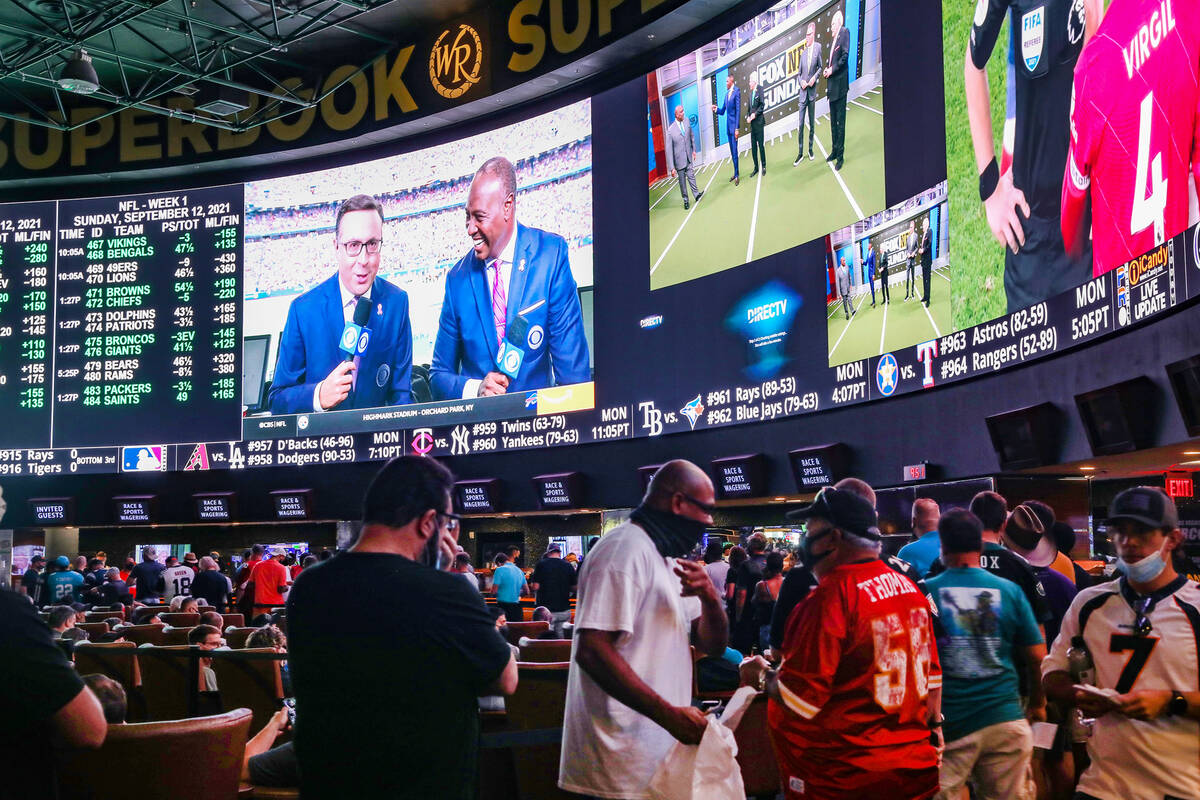Super Bowl wagering surges without competition from California
We should know later this week just how much people bet on Super Bowl 58.
Most analysts were convinced going in that a record handle would be achieved for the Super Bowl, the first time the NFL’s championship game was played in Las Vegas.
It wasn’t the first time the game was played in a state that offered legalized wagering on sports. That distinction goes to Arizona, which last year hosted Super Bowl 57 at State Farm Stadium in Glendale — which, incidentally, has its own sportsbook onsite operated by BetMGM.
Fans of the two competitors, the Kansas City Chiefs and the San Francisco 49ers, were among the thousands who flocked to Las Vegas to take in the ambience of the greatest special event in Las Vegas history. And, incidentally, California and Missouri are among the 12 U.S. states that don’t offer legal betting on sports.
The Nevada gaming industry has watched the prospective California sports betting industry closely since many California bettors often find their way to Nevada — Southern Californians to Las Vegas and Northern Californians to Reno and Lake Tahoe — to place bets for big sporting events.
Still no California sports betting
How a progressive state like California can still be without sports betting is perplexing.
It’s become increasingly clear that any approval of sports betting in California has to be supported by the state’s Indian tribes that operate their casinos.
The California sports betting market is clearly one of the largest in the country, and the prospect of the state legalizing and taxing sportsbooks, whether operated from land-based tribal casinos or on mobile devices, could put a dent in black-market operations run by illegal bookmakers.
The American Gaming Association has been advocating for years that federal authorities take a greater role in shutting down illegal operations and urging players not to bet through illegal sources.
The industry got a reminder of what that looks like last month when the spotlight was shined on Wayne Nix, the California-based illegal bookmaker who gambled at MGM Grand, leading MGM’s former president, Scott Sibella, to plead guilty to a federal charge of failing to file a suspicious activity report with federal authorities in 2018.
Nix was still running his illegal operation until federal investigators caught up with him. He, too, pleaded guilty, in April 2022, to one count of conspiracy to operate an illegal gambling business and one count of filing a false tax return. Nix and Sibella are scheduled to be sentenced for their respective crimes March 6 and May 8, respectively, both before U.S. District Court Judge Dolly Gee in California.
In the meantime, sports betting in California continues to languish.
Many people remember the beating two sports-betting initiatives took in the November 2022 election when Propositions 26 and 27 were soundly defeated by voters.
California tribes didn’t back either proposition, and analysts suggested that ballot confusion led to neither proposal being approved.
Since then, another sports betting proposal in the form of two initiatives surfaced. But last month, they died as well.
Two entrepreneurs, gambling industry veteran Kasey Thompson and blockchain executive Reeve Collins, drafted a proposal in September last year to put the new sports betting initiatives on the 2024 ballot. The Thompson-Collins proposal would have given control of California sports betting to the tribes.
Tribes unaware
The only problem — they failed to tell the tribes what they were doing. And the tribes responded with a sovereignty backlash that ended up killing the proposal.
“They basically surprised the tribal nations of the state with these proposed initiatives,” Robert Linnehan, sports betting regulation expert and editor of Sports Betting Dime, said in a recent interview. “And the California tribes came back and said, ‘This is the most ridiculous and offensive thing that we’ve ever seen that these outsiders would propose these initiatives on our behalf saying that they’re for our good.’”
Thompson announced in January that he had withdrawn his proposal from the California secretary of state’s office without ever collecting a single signature from the public to place it on the ballot.
“The whole thing was, for lack of a better word, wacky and disingenuous and something that the tribes are very much against, but for some reason the proponents kept pushing forward and trying to get it on the ballot. It didn’t make a whole lot of sense.”
Local analysts have differing opinions.
“I’m just kind of scratching my head over what’s going on in California,” said Josh Swissman, founding partner and managing director of Las Vegas-based GMA Consulting. “I mean are they ever going to get sports betting legislation done?”
Large untapped market
Brendan Bussmann, a gaming industry analyst with Las Vegas-based B Global, said that the Thompson-Collins proposal deserved to die but that it’s only a matter of time before the U.S.’s largest untapped sports betting market is open.
“The withdrawal of the two California sports betting initiatives likely leaves sports betting in a better place and back in the hands of the tribes to develop the best solution possible working with operators,” he said. “This initiative was ill conceived from the beginning and would have only pushed sports betting out further for California.
“After a toxic result from 2022, this was always going to be a 2026 or a 2028 play with the voters of California to get it across the finish line,” Bussmann said. “California was never going to be an easy process to get sports betting done because you have to find consensus amongst the tribes which number over 100.”
In the meantime, Nevada sportsbooks won’t have to worry about competition from the West – except from illegal operators that federal authorities must continue to root out.
Contact Richard N. Velotta at rvelotta@reviewjournal.com or 702-477-3893. Follow @RickVelotta on X.


















